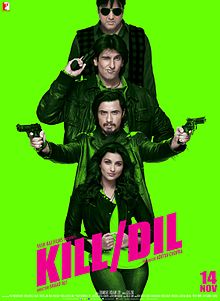I confess, the North American box office figures from July 3-5, 2015, have me stumped. How did Second Hand Husband — a movie with no must-see stars and no advanced local promotion — earn nearly $100,000 in North America?
The exact figures for Second Hand Husband‘s opening weekend, according to Bollywood Hungama, are $99,838 from 74 theaters ($1,349 average). That’s more than Hamari Adhuri Kahani earned in its first weekend in the US and Canada ($94,005), and that movie starred Vidya Balan and Emraan Hashmi. Second Hand Husband also vastly out-performed a few other 2015 releases with (marginally) viable stars in their opening weekends: Welcome 2 Karachi with Arshad Warsi ($26,013); Hashmi’s Mr. X ($24,806); and Hawaizaada with Ayushmann Khurrana ($16,546).
So how exactly does a movie that currently has only 17 user ratings, one user review, and two critic reviews — one by yours truly; the other link doesn’t even lead to a review — at IMDb earn almost six figures in North America? The most obvious answer is desperation. It’s been two weeks since a new Bollywood film released here, and there’s a chance we won’t get another until Salman Khan’s Bajrangi Bhaijaan opens on July 16. There could be untold legions of devoted Dharmendra fans, or lots of people morbidly curious to see the Bollywood debut of Govinda’s daughter. There could also be a large number of non-Bollywood fans who bought a ticket for Second Hand Husband based on its English title, who then walked out when they realized it was a foreign movie and went to see Jurassic World instead.
Whatever the reason, kudos to Second Hand Husband for turning in an opening weekend that was shockingly not disastrous.
Dil Dhadakne Do crossed the $3 million mark in North America its fifth weekend of release. It earned $48,788 from 27 theaters ($1,807 average) to bring its total to $3,013,736. That’s less than $8,000 behind Tanu Weds Manu Returns‘ total of $3,021,287. TWMR earned $2,782 from two theaters ($1,391 average) in its seventh weekend.
In its third weekend, ABCD 2 added another $27,807 from 22 theaters ($1,231 average), bringing its North American total to $865,222.
Source: Rentrak, via Bollywood Hungama






